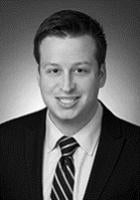Setting the stage for what may be a far-reaching interpretation of the False Claims Act (FCA), the Supreme Court of the United States granted certiorari to resolve a circuit split over whether “implied certification” is a viable theory of liability under the FCA. Universal Health Servs., Inc. v. United States ex rel. Escobar, No. 15-7. Unlike a typical false certification case—in which a person explicitly but falsely certifies compliance with a statute, regulation, or contract provision—an implied certification case does not require an express certification of compliance. Instead, it merely requires failure to comply with a statutory, regulatory or contractual requirement that is condition of payment.
There is presently a circuit split over whether FCA cases may be brought under an “implied certification” theory. This summer, the Seventh Circuit rejected the theory, holding that the theory “lacks a discerning limiting principle.” United States ex rel. Nelson v. Sanford-Brown, Ltd., No. 14-2506, 2015 WL 3541422, at *12 (7th Cir. June 8, 2015). We previously covered the Seventh Circuit’s decision in Nelson, here. In the Seventh Circuit’s view, the FCA “is simply not the proper mechanism” to enforce compliance with statutes, regulations, and contractual provisions. Id. Other circuits, including the First Circuit in its decision, United States v. Universal Health Services, No. 14-1423 (1st Cir. Mar. 17, 2015), recognize the “implied certification” theory of liability.
But even among the circuits that do recognize the “implied certification” theory, there remains yet another split. Some circuits, such as the Second and Sixth, allow an implied certification case to proceed only if the statute, regulation, or contractual provision is considered an express condition of payment. See, e.g., Mikes v. Strauss, 274, F.3d 687, 702 (2d Cir. 2001); Chesbrough v. VPA, P.C., 655 F.3d 461, 468 (6th Cir. 2011). Other circuits, such as the First, Fourth, and District of Columbia circuits, do not require an express condition of payment. Rather, these circuits would consider implied conditions of payment. See, e.g., United States ex rel. Hutcheson v. Blackstone, 647 F.3d 377, 386-88 (1st Cir. 2011); United States v. Triple Canopy, Inc., 775 F.3d 628, 636 (4th Cir. 2015); United States v. SAIC, 626 F.3d 1257, 1269-70 (D.C. Cir. 2010).
The Supreme Court has granted certiorari to decide whether the “implied certification” theory is a viable basis for liability under the FCA. If the Court rules in the affirmative, then it will also need to decide whether an “implied certification” theory case can proceed when the matter certified is not an express condition of payment. The Court’s resolution of this case has the potential to streamline or further complicate the litigation of false certification cases. Regardless of the court’s ultimate decision, the Court’s decision to grant the writ illustrates the fluidity of the law interpreting the scope of liability under the FCA. A review of the evolving case law also suggests that, at least for some Circuits, the trend of expanding the FCA’s reach may be reaching its limit as courts are becoming increasingly sensitized to the harm and unfairness in interpreting a statute intended to combat fraud so broadly that it exposes companies to potentially crippling monetary penalties based on subjective interpretations of complex and arcane regulatory requirements. We will be following this matter closely as it proceeds to briefing, oral argument, and decision.


 />i
/>i

